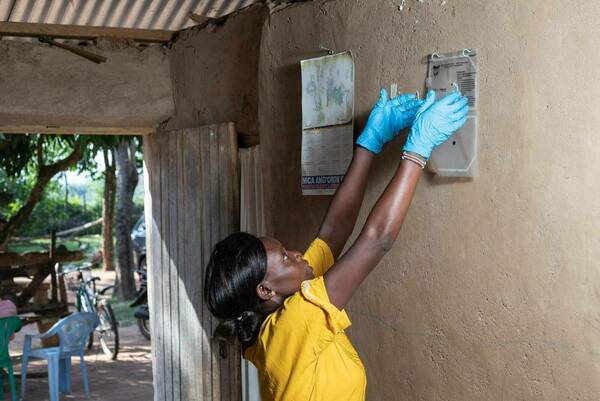Indiana Justice Project and the Notre Dame Clinical Law Center publish a report on the future of eviction record sealing in Indiana
Indiana Justice Project (IJP) and the Notre Dame Clinical Law Center have issued a report on policy options to consider with regard to Indiana’s popular eviction sealing statute. Additionally, the report compares Indiana’s statute to similar statutes in several other states.
The report makes five recommendations:
· Seal all eviction records at the time of filing.
· Automatically seal, or automatically preserve sealing of, eviction records.
· Automatically seal all evictions after a period of years.
· Simplify the process for sealing evictions when a money judgment is satisfied or otherwise discharged.
· Create an explicit enforcement mechanism for improper sharing or usage of sealed eviction records.

IJP Executive Director, Adam Mueller states, “through our eviction sealing clinics, and conversations with attorneys and housing insecure individuals, we have come to understand how valuable sealing past eviction records is to Hoosiers. The recommendations we make are reasonable and practical steps to ensure the statute continues to work as intended.”
This report started as a class assignment in Professor David Pruitt’s Eviction Clinic at the Notre Dame Clinical Law Center, where students receive hands on training in representing individuals in eviction proceedings. Pruitt, who is also the director of the Clinical Law Center, states, “our students have seen the real-world implications for how Indiana courts handle the sealing of eviction records. This latest report continues our strong partnership with the Indiana Justice Project, which has been a consistent voice in proposing common sense solutions to better protect Indiana tenants.” IJP and the Notre Dame Clinical Law Center have worked in past on a report looking at Indiana eviction policy and practices as compared to the American Bar Association’s Eviction Guidelines.
IJP’s housing work is funded through a partnership with IU School of Medicine’s Grassroots Maternal and Child Health Initiative. We partner with the GMCHI on a HRSA Catalyst for Infant Health grant called Housing Equity for Infant Health. Professor Jack Turman Jr., Principal Investigator on the HRSA grant states, "Working to advance eviction sealing for pregnant individuals and their families living in Indiana is a vital step towards improving the health and wellness of these families and our state’s maternal and child health outcomes. Implementing easy, feasible processes for these families to seal previous evictions will help them secure safe, affordable, quality housing. This in turn will improve birth outcomes and improve child health and development. This is a big win for the families and our society. “
Contacts:
· Adam Mueller, Indiana Justice Project amueller@injp.org
· David Pruitt, Notre Dame Clinical Law Center david.r.pruitt.13@nd.edu
· Jack Turman, Jr, Grassroots Maternal and Child Health Initiative jaturman@iu.edu
This article was written by Adam Mueller from the Indiana Justice Project.
Originally published by at law.nd.edu on September 06, 2024.
Latest Research
- NSF Cyber SMART’s fall meeting shapes fifth year of project, legacy and future plans, and adds new memberThe U.S. National Science Foundation (NSF) Cyber SMART center gathered for its fall meeting on the University of Notre Dame campus this September. The meeting served as a checkpoint with progress reports and new projects from research leads and students…
- Slavic and Eurasian studies professor wins Humboldt fellowship to research how Russia’s religious past shapes its presentWhen Russia invaded Ukraine on Feb. 24, 2022, Sean Griffin realized his second book needed a new title. Griffin, an associate professor in the University of Notre Dame’s Department of…
- Notre Dame’s R.I.S.E. AI Conference builds interdisciplinary collaboration to inform human-centered artificial intelligenceAs artificial intelligence (AI) transforms nearly every sector of society — from healthcare and education to governance and global development — a critical question emerges: How can we conscientiously design and deploy these powerful technologies to positively impact society? This…
- University of Notre Dame joins the Global Coalition of Ukrainian StudiesThe University of Notre Dame has joined the Global Coalition of Ukrainian Studies after signing a Memorandum of Cooperation (MOC), formalized on September 24, 2025, at the Ukrainian Institute of America in New York City. Notre Dame joined four other American…
- The University of Notre Dame’s Mendoza College of Business and Industry Labs team up to inspire national security manufacturing competitiveness in the regionThe South Bend - Elkhart Region is full of manufacturing companies that are poised to grow, and Executive Master of Business Administration (EMBA) and Master of Business Administration (MBA) students at the University of Notre Dame are finding innovative ways to contribute to that growth. Earlier…
- Notre Dame research informs WHO conditional recommendation for spatial repellents in malaria vector controlThe World Health Organization (WHO) recently announced a “conditional recommendation” for spatial emanators, also known as “spatial repellents,” in the fight against malaria. This key determination was informed by spatial repellent studies that included the Advancing Evidence for the Global Implementation of Spatial Repellents (AEGIS) Project in Kenya, led by the University of Notre Dame and funded by Unitaid. The findings from this particular study were recently published in The Lancet.













